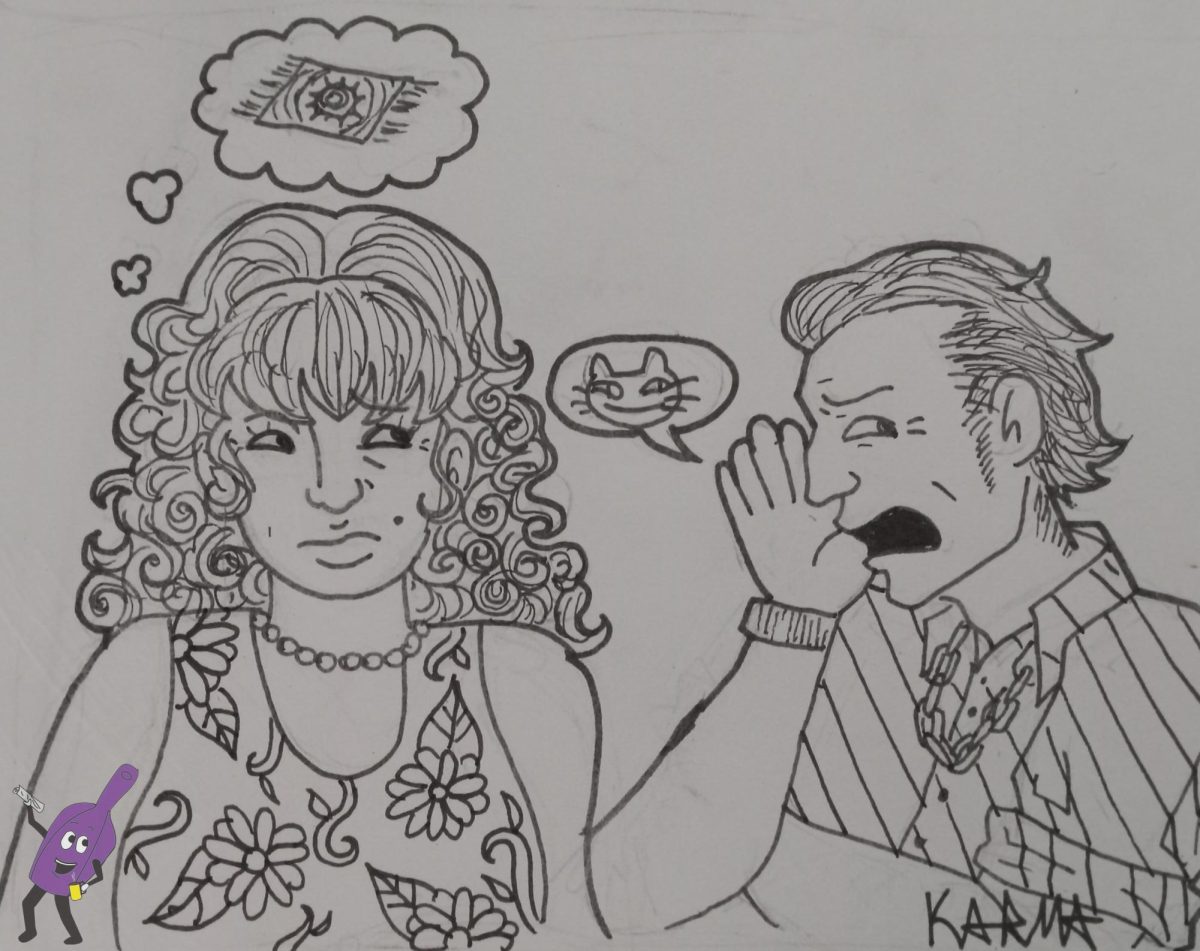My parents cook a lot, they love to try new things and have both traveled to multiple countries outside of the United States. This means that growing up I brought a lot of leftovers to school for lunch. I looked forward to having pancit (a Filipino rice noodle dish) or perogies (polish dumplings) with sauerkraut as an afternoon treat. However, whenever I brought something new to the table I was almost always met with strange looks or complaints about smells. I once even had a substitute make fun of me for my food and proceed to have the rest of the class join in on the “joking”.
These experiences more often than not left me feeling bruised. I didn’t understand what was so taboo about eating something from a different culture, just because you hadn’t heard of it before didn’t mean the food was weird or gross. Now that I am a little older and have slightly thicker skin (emphasis on slightly), I understand that when people react negatively to something that is different it can stem from a place of ignorance. This lunch time controversy is an example of cultural differences, something that often causes miscommunications and is often seen at the root of them today.
HelloVaia describes cultural differences as, “Variations in cultural traits between cultures, including different music, different language, different religion, different cultural mores, and so forth.”
Another aspect of culture that is so ingrained into one’s system that you may not realize it is a part of it is the way you conduct yourself in public, or your mannerisms. Based on thousands of years of history each hemisphere of the world has its own norms when it comes to social behavior. When people travel to foreign countries we often see this come to a head as they make small mistakes that can easily appear rude.
A country that Americans often find themselves confused by is Japan with its exceedingly different cultural behaviors. Customs that are considered a courtesy in American culture are often out of place to Japanese people and can even come off as offensive.
One such example being the American tendency to tip servers. Business Insider explains that while in the U.S. those who bartend or are in the service industry basically live off tips and it is considered a polite gesture no such thing exists in Japan. Service workers in Japan tend to be much more formal and most people do not see tipping as a necessary practice. Japanese people may show their appreciation for a server instead by folding chopstick sleeves into origami or other displays of creativity.
Another difference between the cultures is how they may greet each other. While in America depending on your relationship with someone you might shake hands, hug, or kiss on the cheek this is all far too informal for Japan. Like many other Asian cultures, people in Japan will greet each other by bowing. The depth of the bow may display different emotions like gratitude or respect. Occasionally, this has caused scandal between Western and Japanese officials when the bowing custom is misunderstood and a Westerner bows too deeply insinuating a personal relationship.
These contrasts may make Japanese people seem cold or too formal to foreigners, however this is not found to be accurate among the nation’s people. One of the most poignant variances in American versus Japanese culture is where we lean on the collectivist or individualist scale. Americans are individualistic, especially in business culture, focusing on their own accomplishments as KSEmoving states. Whereas Japanese people take pride in group culture, feeling more at home as a unit. This is not to say Americans don’t work well together, we just tend to value individual success, while in Japan, they strive for group achievement.
Another example of cultural miscommunications is Christopher Columbus’s “discovery” of what he assumed was India and that the people there were his to colonize.
When Columbus set out to sea he had very little knowledge of the “new world” that he was looking for. His scope of information came strictly from the stories of other men that were hundreds of years old and did not match up. The Smithsonian states that he “clung” to the information of older men and believed much of it to be true to a fault.
When he reached the Americas and met different indigenous tribes Columbus still insisted on calling them all Indians. His lack of knowledge concerning Indian cultures, and a complete dismissal of the different Indigenous American groups, led Columbus to completely confuse one culture with another. Additionally, after he saw the variances in Native cultural norms as opposed to European standards Columbus refused to see anything other than a “lack of civility” because he could not understand a culture unlike his.
So when Columbus first met The Arawak tribe, who were native to the land he would name Española (later called Hispaniola), he mistook their way of life as an absence of knowledge and religion and planned to “educate them”.
The Arawak were extremely kind and welcoming to Columbus, they brought him gold from the jewelry they wore and anything else he requested. It’s pretty easy to see that logically these people were being nice, Columbus didn’t seem to mean any harm so why not welcome him. However, Columbus mistook these acts of goodwill for childlike innocence and figured that these people could easily be converted to a European way of life. His phrasing of this to the King and Queen of Spain was, “ …they are also fitted to be ruled and to be set to work, to cultivate the land and to do all else that may be necessary, and you may build towns and teach them to go clothed and adopt our customs” (The Smithsonian).
What would follow can be seen as the genocide of this particular Indiginous tribe and soon several others as they were put to work mining. Columbus’s ignorance about other cultures and neglect to learn about them lead to the enslavement and murder of thousands. Perhaps if he had thought to learn about a culture different than his he may have made an ally in the Arawak people instead of assimilating and ultimately killing them.
On any given day miscommunications are easy to come by and they often happen because of our lack of awareness. As a society we could all do better at listening to others and slowing our role before we make assumptions. If we decided to be more open minded and didn’t jump to conclusions so quickly we might have an easier time communicating with one another.
My great hope for the future is that we find a way to approach social situations with care to avoid misunderstandings, and that when they do happen we can catch ourselves in the act and clear it up then and there.





